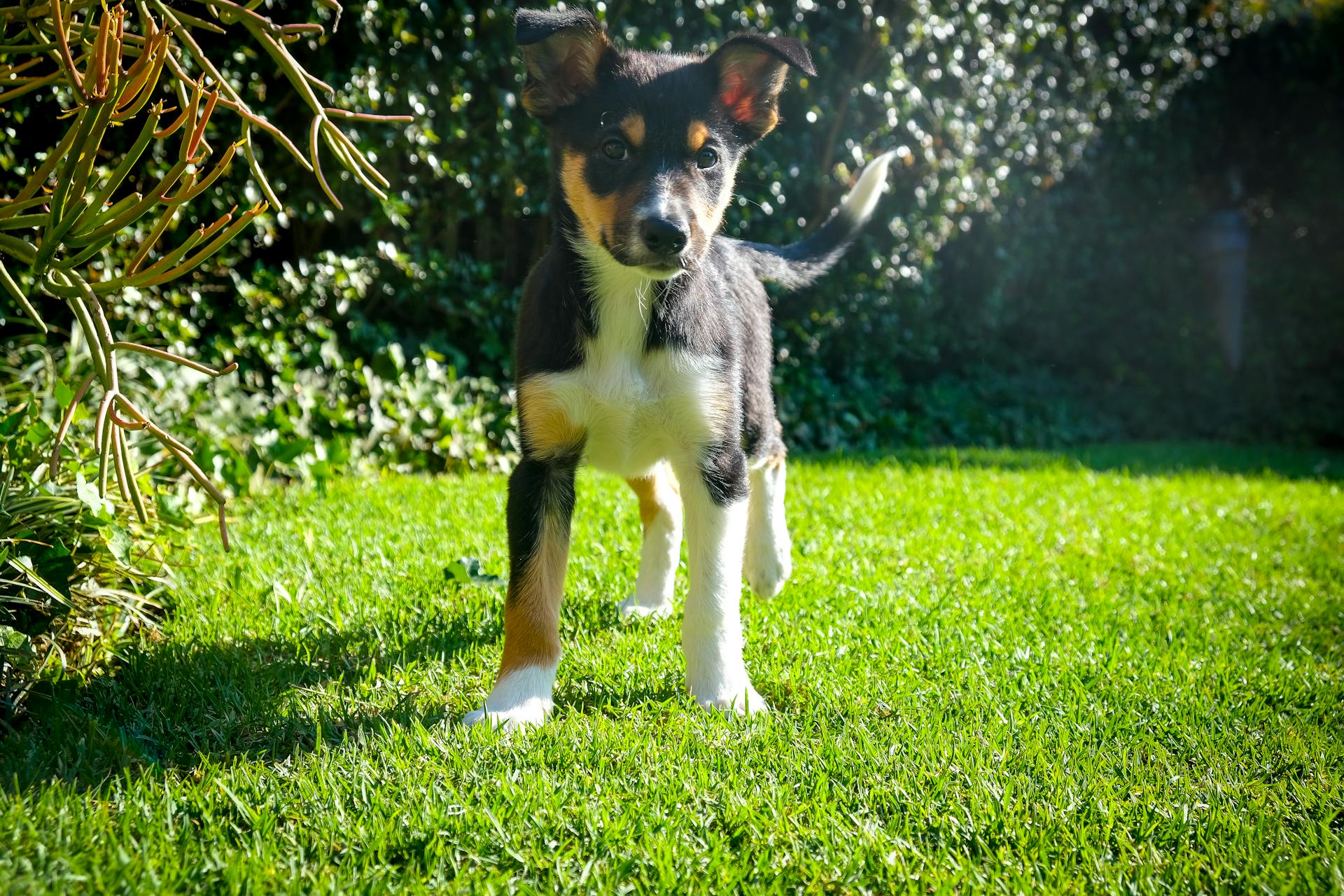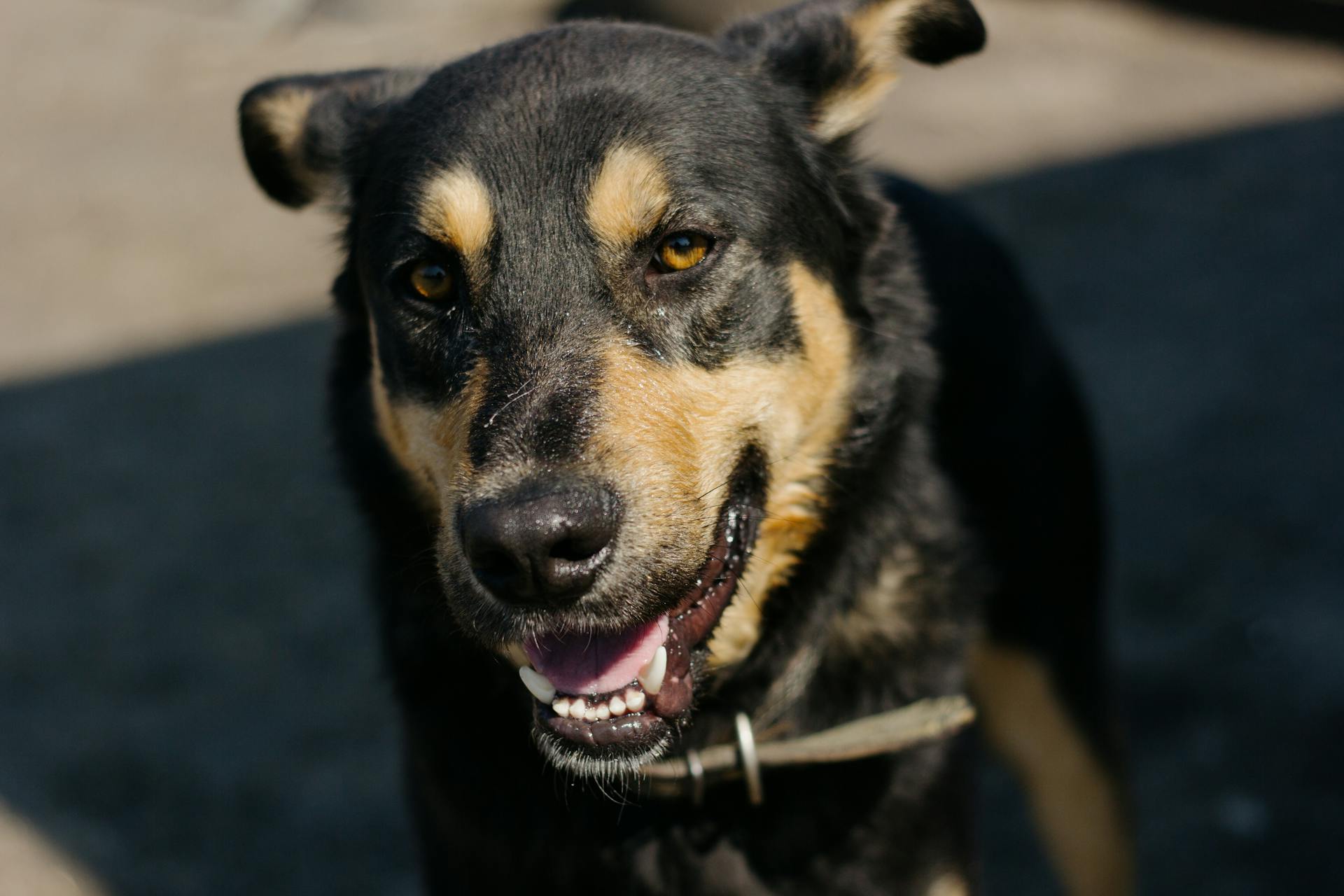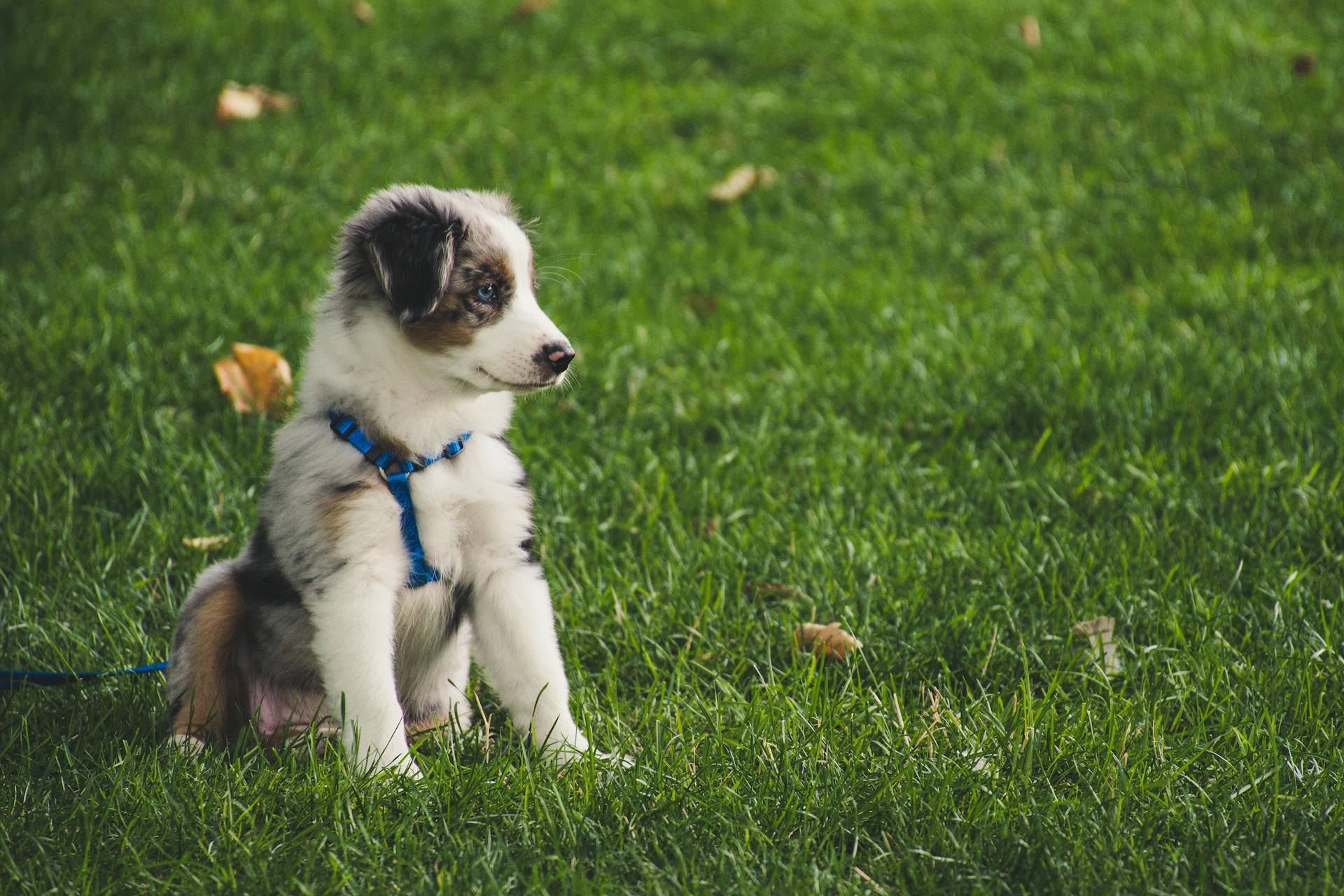
The Australian Kelpie is a highly intelligent breed that thrives on mental and physical stimulation, making them a great match for active families. They are naturally curious and love to learn.
With their high energy levels, Australian Kelpies need plenty of exercise to stay happy and healthy. A daily walk or run is a must for this breed.
Their intelligence and loyalty make them a popular choice for farmers and working families, who appreciate their ability to learn and adapt quickly.
Australian Herding Breeds
Australian herding breeds are high-energy dogs that thrive in active homes with plenty of exercise and stimulation. They're perfect for families who enjoy outdoor adventures and have the time to provide the necessary training and care.
Many Australian herding breeds are working dogs, suited to homes with active lifestyles. They're naturally suited for tasks like herding and cattle work.
If you're considering bringing an Australian herding breed into your family, be prepared to provide plenty of physical and mental stimulation to keep them happy and healthy.
Shepherd
The Australian Shepherd is a fantastic example of a herding breed that's perfect for active families. They're known for their intelligence and herding instincts, making them great for herding sheep, cows, or even kids.
These dogs are fast learners and always ready to work, which is why they're often used as service and emotional support animals. They're also incredibly loving and agreeable, making them great as family pets.
Australian Shepherds are a midsize breed, with a height range of 18-21 inches and a weight range of 50-65 pounds. They have a lifespan of 13-15 years and come in a variety of colors, including merle, black, red merle, and red tricolor.
Their energetic and intelligent nature makes them a great choice for athletes who need a running or hiking partner. They're also tough and tireless, making them well-suited for rural living and service-related training.
Here are some key characteristics of the Australian Shepherd breed:
Overall, the Australian Shepherd is a wonderful breed that's perfect for families who are looking for a loyal and loving companion.
Kelpie
The Australian Kelpie is a tenacious herder known for their intensity while moving livestock. They have strong herding instincts and a little more aggression than other breeds.
Their strong attitude and abilities make them great for taking on ornery cattle or encouraging livestock out of thick undergrowth. With proper adaptation, they become very loyal dogs.
Kelpies are highly trainable, which makes them a great choice for experienced dog owners. They can herd with little or no guidance.
In terms of physical characteristics, Kelpies typically stand between 17-20 inches tall and weigh between 35-50 pounds. They have a lifespan of 10-13 years.
Their temperament is intelligent, loyal, and protective. They are known to be vigilant and protective of their family.
Here are some common colors found in Kelpies: black, black and tan, red and tan, fawn, red, chocolate, and blue.
Kelpies are best suited for individuals and families who have a lot of territory for them to sniff out. They work best when they have a job to do, so make sure they're not sitting idle in a house.
A well-cared-for Kelpie can be a wonderful family companion, but they do require regular exercise and stimulation to prevent nervous tendencies and destructive behaviors.
Take a look at this: Australian Kelpies Puppies
Traits and Characteristics
Australian herding breeds are known for their strong herding instincts, which make them perfect for moving and handling livestock. They're naturally alert and curious, always on the lookout for any signs of trouble.
Some breeds are more aggressive than others, especially when it comes to cattle. This aggression is actually a valuable trait, as it helps them bring and move livestock with ease.
But it's not all about being tough - many Australian herding breeds are also incredibly loyal and energetic. They make great companions and are always up for an adventure.
Traits: Pleasant
The Pleasant trait is a wonderful characteristic to have, and it's reflected in some amazing animals.
Being Pleasant is not just about having a friendly demeanor, but also about being approachable and calm in stressful situations.
Some animals with strong herding instincts, like those with Strong herding instincts for moving and handling livestock, tend to be more Pleasant as they work well in groups and are often gentle with their charges.
Their Pleasant nature helps them navigate complex social dynamics and build strong bonds with other animals and humans alike.
Traits: Intelligent, Aggressive with Cattle
Australian Cattle Dogs are known for their intelligent nature, which makes them a valuable asset for livestock owners and handlers.
Their intelligence allows them to learn and adapt quickly to various situations, making them effective at herding and handling livestock.
They have a strong herding instinct, which drives them to move and handle cattle with ease.
Aggressive with cattle is a key trait of Australian Cattle Dogs, as they were bred to nip at the heels of livestock to move them along.
This trait is essential for their role as herders, where they need to be able to effectively move and handle large groups of cattle.
Australian Cattle Dogs are compact and built for a hard day's work, making them well-suited for the demands of ranch or range work.
Explore further: Australian Cattle Dog Herding Dogs
Traits: Loyal Fearless
Loyal animals are naturally protective of their companions and territory, as seen in the breed that has "Good herding and protective instincts for handling and protecting livestock".

Fearless animals are not easily intimidated, which can be beneficial in situations that require confidence and bravery.
Having a fearless companion can be incredibly reassuring, especially in new or unfamiliar environments.
Loyal animals often form strong bonds with their owners, making them great companions for those who value long-term relationships.
Their protective instincts can also extend to their human family members, providing an added sense of security.
Caring for Working Animals
Australian herding breeds are high-energy dogs that require specific care to maintain their health and well-being.
Farm and ranch breeds boast naturally-independent qualities, but to maintain optimum health, owners must consider specific training.
To ensure your Australian herding breed gets the exercise it needs, provide regular physical activity and mental stimulation.
Recommended read: Breed-specific Legislation
Caring for Working Animals
Farm and ranch breeds, like those mentioned in the "How to Care for a Working Dog" section, require specific training to maintain their naturally-independent qualities.
Their high-energy levels demand a tailored nutrition plan to keep them healthy and thriving.
To protect these working animals, owners must consider their unique needs, such as protection from harsh weather conditions.
Farm and ranch breeds boast naturally-independent qualities, but to maintain optimum health, owners must consider specific training, nutrition and protection geared to their high-energy pooch.
Discover more: Ranch Dogs Breeds
Collars and Microchipping
Farm and ranch dogs often travel long distances and spend time away from home, making them more likely to get lost or picked up by a passerby. Collars with nameplates, numbers, and addresses can help prevent this from happening.
These collars can also increase the chances of a lost dog being returned home. A well-designed collar with essential information can make a big difference in the event of a dog going missing.
Using tracking collars or microchipping your working dogs can help you locate a lost dog. This can be especially useful if your dog is injured on the job and can't find its way back home.
Understanding and Working with Aussies
Working with Australian herding breeds requires understanding their high-energy nature. These dogs were bred to work long hours, so they need regular exercise and mental stimulation to stay happy and healthy.
Their independent qualities can sometimes make them stubborn, so consistent training and clear boundaries are essential. This means setting aside dedicated time each day for training and exercise.
Related reading: Why Are There so Many Breeds of Dogs
To maintain their physical health, Australian herding breeds need a balanced diet that meets their energy needs. This may involve feeding them multiple meals throughout the day to keep their energy levels stable.
Their naturally independent nature can sometimes make them more prone to wandering off if they're not properly trained and supervised. This means keeping a close eye on them, especially in areas with loose livestock.
Australian herding breeds are intelligent and responsive to positive reinforcement training methods. This means using rewards and praise to encourage good behavior, rather than punishment or negative reinforcement.
Frequently Asked Questions
What is the most common herding dog in Australia?
The Australian Cattle Dog, also known as the "heeler", is a popular herding breed in Australia due to its strong herding instincts and compact build. They're often used by livestock owners and handlers for their ability to effectively manage livestock.
What are Australian herding dogs called?
Australian herding dogs are commonly known as "Red Heelers" or "Blue Heelers" due to their distinctive coloring and herding style. They are also referred to as "Queensland Heelers" in some regions.
What animals do Australian cattle dogs herd?
Australian Cattle Dogs herd cattle, utilizing their unique herding method of nipping at the animals' feet.
Are heelers good family dogs?
Heelers are loyal and energetic family dogs that thrive on attention and interaction, making them a great fit for active families. However, their protective nature requires careful socialization and training to ensure they're a good match for your household.
Sources
Featured Images: pexels.com


